Recombinant bovine/porcine FGF2-G3 145 aa protein (Qk080)
Recombinant bovine/porcine FGF2-G3 protein is a thermostable engineered form of FGF-2 (bFGF). Qk080 is the thermostable form of the wild-type FGF-2 145 aa (Qk040). FGF2-G3 has an increased functional half-life from <10 h (wild-type) to >7 days (FGF2-G3). Bovine FGF2-G3 is used for the development of optimized serum-free culture media for species-specific bovine (cow) and porcine (pork) cultivated meat and veterinary research applications, including the expansion of bovine and porcine smooth muscle cells, bovine and porcine induced pluripotent, embryonic and mesenchymal stem cells.
Recombinant FGF2-G3 is used in B8 media (Kuo et al. 2019) and Beefy-9 media (Stout et al. 2023) for weekend free, high homogeneity induced pluripotent stem cell culture. FGF2-G3 also has applications in chemically defined stem cell and organoid culture media.
Bovine/porcine FGF2-G3 has a molecular weight of 16.3 kDa. This protein is carrier-free and tag-free to ensure purity with exceptional lot-to-lot consistency.
Our products are for research use only and not for diagnostic or therapeutic use. Products are not for resale.

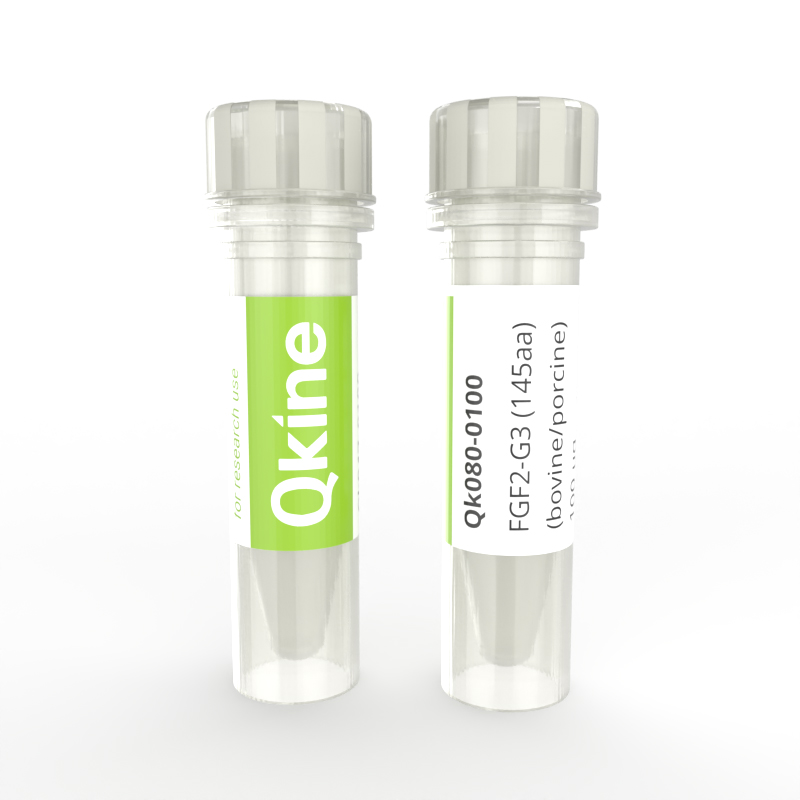
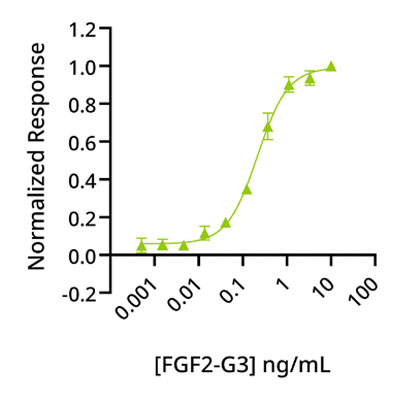
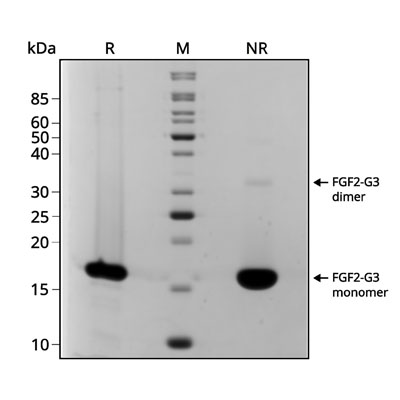
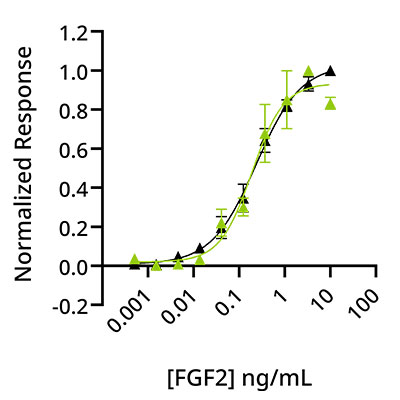
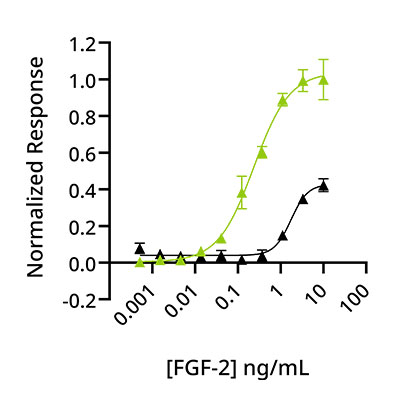
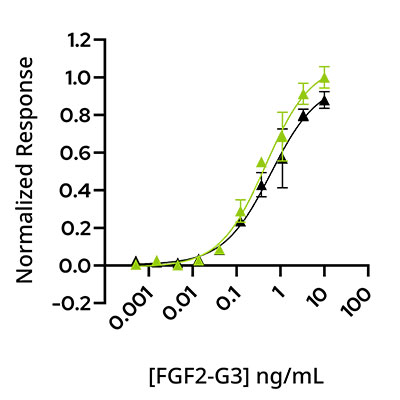

What others are saying
There are no contributions yet.